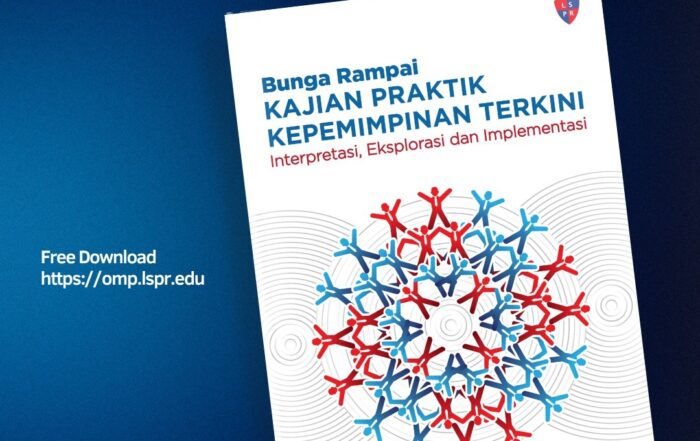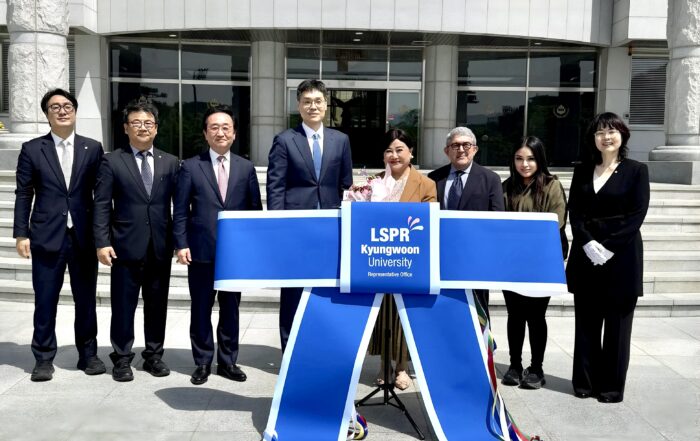
Jakarta – Indonesia is ranked 35th for a country prone to disasters. Supported by the size of Indonesia’s population, the occurrence of a disaster has a risk that is quite large in the number of victims. Statistical data recorded by BNPB (National Disaster Management Agency) until September 2021, there have been 1,969 disaster events that have caused 6,208,250 fatalities (suffering and evacuating), 583 fatalities (died and missing). With this, to anticipate the occurrence of disasters, disaster management is needed, and insight into disaster mitigation, which is aimed at the young generation who are fast, agile and ready to be ready to help with issues related to disaster and humanity.
The young generation is the holder of the nation’s future. Today’s youth should play a major role in humanitarian issues and also disaster problems that often occur in society. The younger generation must care about existing humanitarian issues and have an important role in supervising and maintaining human resources, natural resources, the quality of the population, ecology, and other matters related to humanity. To support progress in disaster management efforts, crises and humanitarian issues, LSPR Communication & Business Institute, in collaboration with Indonesia Resilience (IRES) implemented the “Humanity Project – LSPR CARE” program to contribute to disaster, crisis and other issues. humanity for the younger generation in Indonesia.
The Humanitarian Project – LSPR PEDULI is a subprogram of the Independent Campus Competition Program (PK-KM) from the Directorate General of Higher Education which was won by the LSPR Institute. A series of previous activities such as webinars have been carried out since August 2021. The highlight of the activities in this sub-program are social activities which will be held directly in Taman Jaya Village, Pandeglang, Banten on November 15-19 2021. Nine lecturers and staff and eight students /i The LSPR Institute will participate in volunteering in the LSPR Peduli Humanitarian Project.
“Alhamdulillah, LSPR Institute has won one of the Merdeka Campus activities organized by the Directorate General of Higher Education, namely PK-KM. Last July, LSPR officially implemented these 5 PK-KM sub-programs, one of which was the Humanitarian Project – LSPR Peduli”, said Dr. Sri Ulya Suskarwati, S.E., M.Si, as Chair of the LSPR Institute PK-KM Taskforce. Digital Transformation is the theme carried by the LSPR Institute in this activity by referring to the 8 Main Performance Indicators (IKU), namely Improving the Quality of Students, Lecturers, and Learning. “Together with LSPR Institute academic community, we are collaborating to complete the PK-KM program by December 2021,” he said.
In PK-KM activities, the Humanitarian Project can show that students, lecturers, and staff are heroes in the field of education. By providing educational insight about the importance of humanity, disaster mitigation becomes useful for the next young generation who are the holders of the future of a nation.

Taufan Teguh Akbari, P.hD, Vice Rector III of LSPR Communication & Business Institute, said that the LSPR Institute Communication Studies Program, which received study program A accreditation, is a study program that has comprehensive cooperation in the penta helix concept (cooperation with industry, government, society, mass media, as well as with other universities). “Recognition from various partners abroad also shows an unquestionable track record. In this situation, the LSPR Institute hopes to continue to get support from the Ministry of Education and Culture for the achievement of the Independent Campus in an effective and sustainable manner, one of which is through the implementation of this PK-KM, “he added.
In the presentation of the material on the LSPR Peduli Humanitarian Project PK-KM, the Person in Charge and Chief Executive of the LSPR PEDULI Humanitarian Project PK-KM, Patricia Vicky Sihombing, M.Si, said that Head of Program in this activity is to channel donations and carry out various activities in the form of interpersonal communication with partners, especially in this case the affected communities. He explained that there are activities such as providing material directly in accordance with the expertise of each field. In addition, Vicky also added, “We also carry out a Supporting Program, being a presenter at workshops/webinars and giving special assignments to the subjects we teach, which are related to the topic of the Humanitarian PKKM webinar. While the benefits for students involved in this humanitarian project are that apart from learning to directly build disaster communication channels and understanding disaster mitigation as a form of defending the country, fellow students also learn to hone empathy and a sense of solidarity.”
The collaborative principle of disaster management is an important part of building a resilient community. The value of collaboration is inseparable from the penta helix of disaster management. Disasters for Indonesia cannot be separated, because almost every day threats related to disasters continue to haunt the Indonesian people. Choosing to be involved in disaster management is the right thing and has a positive impact on society. Executive Director of Indonesia Resilience, Hari Akbar Apriawan, said, “Efforts in disaster management must be carried out collaboratively so that Indonesia is resilient, not just a discourse. In this case, the collaboration between the LSPR Institute and Indonesia Resilience is a concrete step in building a resilient society in the future. Hopefully, the joint efforts made will be a turning point for all of us to be aware of the disaster in Indonesia and start the response as early as possible.”

Mrs. Patricia Vicky Sihombing, M.Sc.
Some of the lecturers involved in the culmination of the Humanitarian Project – LSPR Peduli were Patricia Vicky Sihombing, M.Sc., Past Novel, MA., Grace Wattimena, M.Sc., Cyntia Keliat, MM., Yoseph Wahyu Kurniawan, M.I.Kom. The five lecturers will directly participate in activities with 4 staff, 8 student volunteers and partner NGO, Indonesia Resilience. Activities that will be carried out are the construction of a disaster communication flow structure, socialization of the introduction of the environment and the impact of disasters to residents and to children with comic media. Meanwhile, IRES supports this activity through the implementation of assessments, Emergency First Aid (PPGD) training and together will conduct disaster simulations as a form of training.

Those who are involved in the culmination of the Humanitarian Project – LSPR Peduli
Humanitarian projects will continue to be carried out by the LSPR Institute to play an active role in overcoming disaster problems through humanitarian programs that have been carried out before. Collaborating with partners and involving students as volunteers to participate by taking part directly in tackling the disaster problem. In addition, the LSPR Institute also conducts collective fundraising to help areas or victims who need assistance. This activity is routinely carried out to equip students to have a sense of social sensitivity, as well as explore and explore existing problems. Students are included so that they can provide solutions according to their respective interests and expertise. The whole series of activities “Humanity Project – LSPR PEDULI” is a tangible manifestation of the LSPR Institute in implementing the MBKM program, especially humanitarian projects and building villages.

The participants











